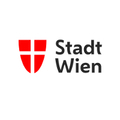Communication from City Councilor Hanke on the subject of “Communication to the Vienna City Council on current European political opportunities and challenges”
Vienna (OTS/RK) – EP MP Mag. Andreas Schieder (SPÖ) thanked “most” of the parliamentary groups for the good cooperation in the EP for the invitation to talk about European policy in the Vienna City Hall. Schieder emphasized the importance of Vienna as a transport hub and link between East and West as well as North and South. The only UN location within the EU is in Vienna. Vienna is also a role model in terms of quality of life, social security and health care, research, public transport and affordable housing. There is no democracy and no freedom without social justice, said Schieder. This is “massively threatened,” said Schieder. He referred to various trouble spots around the world, but also to problems within Europe. He described it as a “disgrace” that the Freedom Party had made itself “Putin’s mouthpiece within Europe”. Schieder emphasized the importance of work at a European level when it comes to supply chain laws, digital legislation, short-term rentals or the situation of delivery and platform workers. He particularly emphasized the climate issues, such as the passed renaturation law, the halving of air pollutant limits, recycling and the “right to repair”. The fight against climate change should also be understood as a location policy issue – more investment needs to be made in Europe. Europe is successful when it is more than “just an internal market”, but when it is “social and democratic”, Schieder concluded.
GR Maximilian Krauss, MA (FPÖ) was “astonished” that the ÖVP was making security its priority while the European Parliament was lobbying for visa freedom and Kosovo’s accession to the EU. There is a “unity party” made up of SPÖ, ÖVP, NEOS and the Greens that want “more and more EU” and “less and less red-white-red politics” in Brussels. When it comes to vaccination, for example, the Freedom Party was “the only one on the side of the population,” which is also reflected in the current election polls. According to Krauss, Austrians’ trust in the EU also shows that in many situations the EU is part of the problem, not the solution. He attested to the Union’s “failure” on major issues and accused the aforementioned “unified party” of standing for “more and more immigration” and “more and more war”. The Freedom Party stands for “more red-white-red” and an “end to the Brussels madness”.
GRin Mag. Bettina Emmerling, MSc (NEOS) said that she was proud that there were people who stood for a strong Austria in a strong Europe. She emphasized the importance of a Europe capable of acting, defending itself and having a future. On the other hand, there is “a party” that does not want citizens to be protected from attacks from outside, that there are positive prospects for the future and that Europe becomes “strong together”. Emmerling described this as a “disgrace”. She described education as the “keystone of our shared future”. She firmly believes that education is the most powerful tool for achieving European goals. Emmerling called for the freedom of movement for education to be made a “fifth European fundamental freedom” and underlined the importance of European educational programs and measures such as facilitating the nostrification of foreign educational qualifications. Her vision is a Europe that recognizes its strength in the diversity of its citizens and in which everyone has equal access to education, said Emmerling.
GR Nikolaus Kunrath (GREEN) began by stating that for him the EU had developed in “the right direction”. However, he noted that there was an “orientation away from a common Europe” on several topics. For this purpose, Kunrath recalled various projects that had been “slowed down” by Austria, among others, and called for a broad opinion-forming process when it comes to specialist topics at the European level. The EU was founded as a peace and democracy project, said Kunrath. He cited Hungary’s “illiberal democracy” as an example, in which corruption and favoritism are commonplace and cities are deliberately “financially starved”. Kunrath also spoke of Turkey and Russia, where there are numerous violations of international law. There is currently no “new edition of the Cold War”, but rather an “increasingly brutal policy”. In order to be able to react accordingly, the Greens advocated EU expansion towards the Western Balkans. Finally, Kunrath emphasized that energy policy is also relevant to security. Austria should no longer co-finance the Russian war through gas imports.
GR Hannes Taborsky (ÖVP) described the founding of the European Union as the point in time when they wanted to “leave the past behind” and put aside “the fight between nation states against each other”. What characterizes the EU is that there is a joint effort to improve the economic area, security and prosperity. It is not about fighting “fortress against fortress”, but rather about advancing important issues together. The FPÖ called Taborsky the “party for fact-free politics” and recalled measures to increase security in Europe and especially in Austria. It is of no use to build “a wall around Austria” when it comes to migration; instead, the causes of flight should be considered. In addition, a rescue from distress at sea does not mean that those rescued should automatically be brought to Europe. Immigration is needed, but illegal migration needs to be slowed down. This can only be solved EU-wide, said Taborsky, recalling various votes on security in which he criticized the FPÖ’s voting behavior. Finally, Taborsky expressed his group’s full support for Ukraine and expressed his hope that the upcoming EU elections will produce a strong Austria in a common and strong Europe. (cont.) jazz
Questions & Contact:
Town hall correspondence
City of Vienna – Communication and Media, Editor on Duty
Service for journalists, city editorial team
01 4000-81081
dr@ma53.wien.gv.at
presse.wien.gv.at
